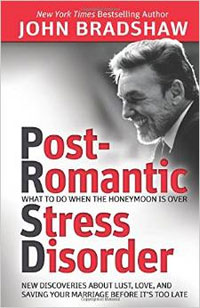 Communication is the key to maintaining a healthy relationship. Communicating with your significant other requires both listening and expressing your thoughts and desires.
Gary Chapmans’ book, The 5 Love Languages, suggests that there are 5 ways that we SHOW and RECEIVE love. His languages are: gifts, quality time, words of affirmation, acts of service, and physical touch. Chapman explains that it is important to learn the ways in which you like to show those that matter most that you love and appreciate them, as well as how you like to receive love from others.
Here are Gary Chapman’s 5 Love Languages:
Words of Affirmation
Hearing the words, “I Love You,” are important, but hearing the reasons on why someone loves you are just as important. Words of appreciation, encouraging works, and kind words are a powerful communication of love. Verbally communicating your love must be done with a humble heart, kindness, tenderness and sincerity.
Quality Time
Communication is the key to maintaining a healthy relationship. Communicating with your significant other requires both listening and expressing your thoughts and desires.
Gary Chapmans’ book, The 5 Love Languages, suggests that there are 5 ways that we SHOW and RECEIVE love. His languages are: gifts, quality time, words of affirmation, acts of service, and physical touch. Chapman explains that it is important to learn the ways in which you like to show those that matter most that you love and appreciate them, as well as how you like to receive love from others.
Here are Gary Chapman’s 5 Love Languages:
Words of Affirmation
Hearing the words, “I Love You,” are important, but hearing the reasons on why someone loves you are just as important. Words of appreciation, encouraging works, and kind words are a powerful communication of love. Verbally communicating your love must be done with a humble heart, kindness, tenderness and sincerity.
Quality Time Nothing says “I love you, like giving your beloved your undivided attention. A person who loves through quality time, or needs to be loved with quality time need that one on one time, with no TV, cell phone on vibrate, no outside influences, just one on one time. Quality time is not just being at the same place at the same time. It involved interaction and sharing the time together. Maintaining eye contact, no multi-tasking, and actively participating in the conversation are a must for the QT lover.
Gifting
Gifting should not be confused with materialism. Receiving gifts as a form of love focuses on the thoughtfulness and effort behind the gift, and vice versa for the gifter who shows love through gifting. The gifter is expressing that their sweetheart is cared for and prized for above whatever was sacrificed to bring the gift. The one showing their love through gift giving often goes through a great deal of thought and planning in an effort to provide the perfect gift at the most appropriate time.
Acts of Service
Showing love through acts of service display the devotion that one has towards their object of affection. Attempting to ease their workload and make their life easier bring pleasure to the acts of service lover. Actions such as housework, cooking meals, laundry, yard work, running errands, dealing with finances are just a few examples of acts of service one might perform to show their love and devotion. These acts, no matter how big or small, require thought, planning and effort. For the loved one who likes to receive love through acts of service, they see them as a display of love and commitment.
Physical Touch
Don’t confuse this love language as just related to sex. Physical touch can be hugs, pats on the back, hand holding, caressing as you pass each other, and kissing when you leave or return to the home. These small acts of affection build excitement and display loving and caring. Love touches don’t take much time and the holding hands, kissing, hugging, touching each other when you leave the house and when you return may involve only a brief kiss, but speaks volumes.
The Importance To Learn Your Love Language
If we use this model of showing and receiving love, it is important to have a healthy relationship to understand two things:
Nothing says “I love you, like giving your beloved your undivided attention. A person who loves through quality time, or needs to be loved with quality time need that one on one time, with no TV, cell phone on vibrate, no outside influences, just one on one time. Quality time is not just being at the same place at the same time. It involved interaction and sharing the time together. Maintaining eye contact, no multi-tasking, and actively participating in the conversation are a must for the QT lover.
Gifting
Gifting should not be confused with materialism. Receiving gifts as a form of love focuses on the thoughtfulness and effort behind the gift, and vice versa for the gifter who shows love through gifting. The gifter is expressing that their sweetheart is cared for and prized for above whatever was sacrificed to bring the gift. The one showing their love through gift giving often goes through a great deal of thought and planning in an effort to provide the perfect gift at the most appropriate time.
Acts of Service
Showing love through acts of service display the devotion that one has towards their object of affection. Attempting to ease their workload and make their life easier bring pleasure to the acts of service lover. Actions such as housework, cooking meals, laundry, yard work, running errands, dealing with finances are just a few examples of acts of service one might perform to show their love and devotion. These acts, no matter how big or small, require thought, planning and effort. For the loved one who likes to receive love through acts of service, they see them as a display of love and commitment.
Physical Touch
Don’t confuse this love language as just related to sex. Physical touch can be hugs, pats on the back, hand holding, caressing as you pass each other, and kissing when you leave or return to the home. These small acts of affection build excitement and display loving and caring. Love touches don’t take much time and the holding hands, kissing, hugging, touching each other when you leave the house and when you return may involve only a brief kiss, but speaks volumes.
The Importance To Learn Your Love Language
If we use this model of showing and receiving love, it is important to have a healthy relationship to understand two things:
- How you like to receive and show love
- How your significant other likes to receive and show love.
 In many relationships, the concept of love languages is foreign. Opening the lines of communication between you and your partner will allow you both to express your thoughts, observations and desires to each other without being criticized. The goal is to build a deeper and long lasting relationship while enjoying each other’s characteristics that you bring to the relationship.
Gary Chapman does offer an assessment: http://www.5lovelanguages.com/profile/couples/
This is a great tool that you and your partner can take and learn the best ways to communicate love and build a lasting relationship.
In many relationships, the concept of love languages is foreign. Opening the lines of communication between you and your partner will allow you both to express your thoughts, observations and desires to each other without being criticized. The goal is to build a deeper and long lasting relationship while enjoying each other’s characteristics that you bring to the relationship.
Gary Chapman does offer an assessment: http://www.5lovelanguages.com/profile/couples/
This is a great tool that you and your partner can take and learn the best ways to communicate love and build a lasting relationship.
 What a classic and profound book! His focus is on new discoveries about lust, love and saving your marriage before it’s too late. Basically it’s about what to do when the honeymoon is over.
His premise is that too many people break up marriages that are worth saving. He is a strong supporter of IMAGO Relationship counseling and agrees that in marriage we are there to heal our partners childhood wounds. Also that the infatuation stage is supposed to decrease in intensity, and when that happens, most people don’t know how to keep the romance and spark in their relationship. He says that being in-love is spontaneous, yet achieving a fully adult kind of mature love is not. It takes effort. He also says that there are things we’d all like to change about our partners, but we must be willing to change our self first. What I really like is that he confirms what I often tell couples, “couples who find satisfaction together are those who are willing to compromise and allow their partners to have their differences”. You don’t have to think alike to have a good marriage, you have to respect the differences. He also talks about how important it is to have a solid sense of self when entering a relationship and why it is essential. He writes about how to overcome shame and argue effectively. I think this book is particularly good for anyone thinking about couples therapy, marriage therapy or relationship therapy. But also, for individuals who want to know essentials of what makes a healthy relationship work.
What a classic and profound book! His focus is on new discoveries about lust, love and saving your marriage before it’s too late. Basically it’s about what to do when the honeymoon is over.
His premise is that too many people break up marriages that are worth saving. He is a strong supporter of IMAGO Relationship counseling and agrees that in marriage we are there to heal our partners childhood wounds. Also that the infatuation stage is supposed to decrease in intensity, and when that happens, most people don’t know how to keep the romance and spark in their relationship. He says that being in-love is spontaneous, yet achieving a fully adult kind of mature love is not. It takes effort. He also says that there are things we’d all like to change about our partners, but we must be willing to change our self first. What I really like is that he confirms what I often tell couples, “couples who find satisfaction together are those who are willing to compromise and allow their partners to have their differences”. You don’t have to think alike to have a good marriage, you have to respect the differences. He also talks about how important it is to have a solid sense of self when entering a relationship and why it is essential. He writes about how to overcome shame and argue effectively. I think this book is particularly good for anyone thinking about couples therapy, marriage therapy or relationship therapy. But also, for individuals who want to know essentials of what makes a healthy relationship work.

 What happens when the opposite transformation takes place
What happens when the opposite transformation takes place
 or they will punish you if you’re not. So let them teach you, every day. Take everything as a lesson learned. If you regret some of the decisions you have made in the past, stop being so hard on yourself. At that time, you did your best with the knowledge you had. At that time, you did your best with the experience you had. Your decisions were made with a younger mind. If you were to make these decisions with the wisdom you have today, you would choose differently. So give yourself a break. Time and experience has a wonderful way of helping us grow and learn to make better choices today, for ourselves and those we care for.
or they will punish you if you’re not. So let them teach you, every day. Take everything as a lesson learned. If you regret some of the decisions you have made in the past, stop being so hard on yourself. At that time, you did your best with the knowledge you had. At that time, you did your best with the experience you had. Your decisions were made with a younger mind. If you were to make these decisions with the wisdom you have today, you would choose differently. So give yourself a break. Time and experience has a wonderful way of helping us grow and learn to make better choices today, for ourselves and those we care for.
 – Confident people have no interest in pleasing everyone they meet. They are aware that not all people agree on things, and that’s just how life works. They focus on the quality of their relationships, instead of the quantity of them. So never let the opinions of the masses define who you are or what you can or can’t do. When you let go of the need to impress everyone, that’s when you begin to be truly impressive to the few people who actually matter. And when you earn the trust and respect of these select few people, no matter where you go or what you try, you will do it with confidence – because you know the people who matter are behind you.
– Confident people have no interest in pleasing everyone they meet. They are aware that not all people agree on things, and that’s just how life works. They focus on the quality of their relationships, instead of the quantity of them. So never let the opinions of the masses define who you are or what you can or can’t do. When you let go of the need to impress everyone, that’s when you begin to be truly impressive to the few people who actually matter. And when you earn the trust and respect of these select few people, no matter where you go or what you try, you will do it with confidence – because you know the people who matter are behind you. – On the contrary, confident people think, “Why not me?” Sadly though, many people feel they have to wait: to be hired, to be good enough, to be chosen – like the old Hollywood cliché, to somehow be “discovered.” But confident people know that access is basically universal these days (especially if you’re online reading this article). They can connect with almost anyone through social media. (Everyone you know knows someone you should know.) They know they can attract their own funding, create their own products and services, build their own networks of clients and partners, choose their own path – they can choose to follow their dreams. And very quietly, without calling too much attention to themselves, they go out and do it.
– On the contrary, confident people think, “Why not me?” Sadly though, many people feel they have to wait: to be hired, to be good enough, to be chosen – like the old Hollywood cliché, to somehow be “discovered.” But confident people know that access is basically universal these days (especially if you’re online reading this article). They can connect with almost anyone through social media. (Everyone you know knows someone you should know.) They know they can attract their own funding, create their own products and services, build their own networks of clients and partners, choose their own path – they can choose to follow their dreams. And very quietly, without calling too much attention to themselves, they go out and do it. – If success makes you arrogant, you haven’t really succeeded. If failure makes you determined, you haven’t really failed. Period. Think about success and failure differently. Don’t take everything that goes wrong personally, and don’t get a big head when everything goes right either. Be a humble, life-long learner. Create, enjoy, learn, love, experience, succeed, fail, persevere, make mistakes, make progress, take risks, and find the treasure in each day.
– If success makes you arrogant, you haven’t really succeeded. If failure makes you determined, you haven’t really failed. Period. Think about success and failure differently. Don’t take everything that goes wrong personally, and don’t get a big head when everything goes right either. Be a humble, life-long learner. Create, enjoy, learn, love, experience, succeed, fail, persevere, make mistakes, make progress, take risks, and find the treasure in each day.


